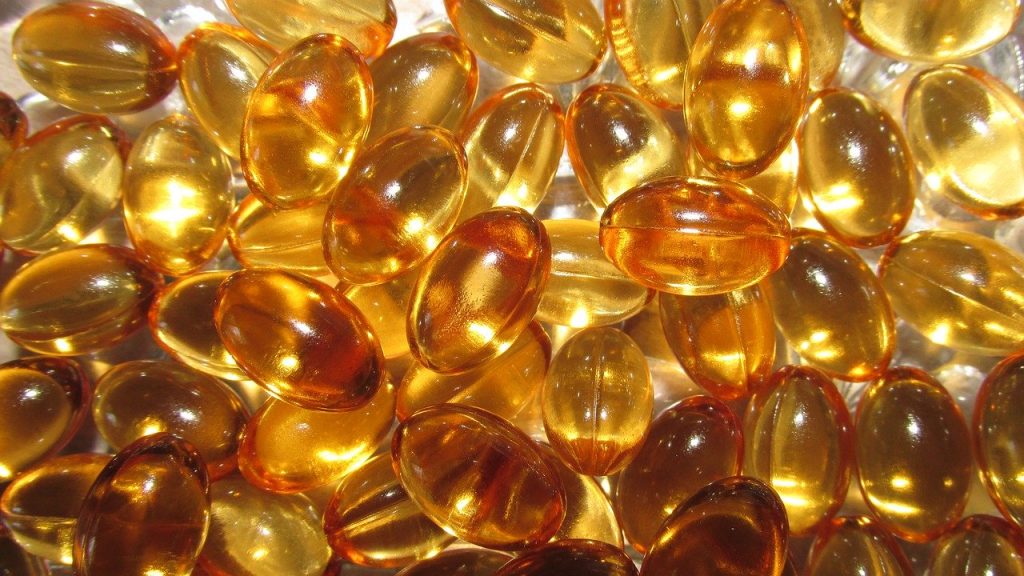Vitamin E is a fat-soluble micronutrient that is essential for boosting immunity and prevents cell damage. It is naturally found in some of the food however, it can also be added to foods during fortification and we can also have supplements. Naturally occurring vitamin E is found in 8 chemical forms out of which only alpha-tocopherol is known to suffice human requirement (1).
Types of Vitamin E
There are 8 types of naturally occurring vitamin E and it can be categorized into two groups (1):
- Tocopherol Group: Alpha-, Beta-, Gamma- and Delta-tocopherol
- Tocotrienol Group: Alpha-, Beta-, Gamma- and Delta-tocotrienol
What is Vitamin E Deficiency?
Vitamin E deficiency is a health condition caused by prolonged deprivation of Vitamin E. It may be caused by inadequate intake of Vitamin E-rich diet and malabsorption due to preexisting health conditions like chronic pancreatitis, cholestasis, cystic fibrosis, and gastrointestinal disorders.
Functions of Vitamin E
Vitamin E is a very important antioxidant that expels free radicals and protects the cell, tissue, and organs from harm caused by free radicals. It slows down the aging process of cells and provides longer life. Vitamin E is also known for increasing immunity and prevention various infections. It also play role in the absorption and use of vitamin K (2).
Causes of Vitamin E Deficiency
The condition of Vitamin E deficiency can be developed due to various factors. Some of the major cause has been illustrated below:
- Inadequate Diet: The most common cause of Vitamin E deficiency is a vitamin deficit diet. We often end up consuming foods that are poor in essential vitamins and minerals such as Vitamin E. Fruits, vegetables and nuts are a rich source of vitamin E however, it is not accessible to every income group.
- GI Disorders: Vitamin E is soluble in fat; hence it gets stored in the liver for future use. The presence of gastrointestinal disorders interferes with the absorption of vitamin E. The deficiency can also be caused by the presence of other diseases like chronic pancreatitis, cholestasis, cystic fibrosis. These factors will lead to prolonged vitamin E deficiency (3).
Symptoms of Vitamin E Deficiency
The common symptoms of Vitamin E deficiency include (3):
- Nerve damage
- Muscle damage
- Body movement disorders
- Muscle weakness
- Age-related vision problems
- Impaired immunity
Health Risks due to Vitamin E Deficiency
- Haemolytic Anemia: It is a health condition in which red blood cells are destroyed faster than they are produced. RBC is responsible for carrying oxygen to different tissues and organs. In the case of anaemia our tissues and organs lack oxygen, which may cause body movement disorders.
- Heart Diseases: Vitamin E supplements are known to protect from cardiovascular diseases. Larges observational studies show help from vitamin E supplements while controlled clinical trials have produced mixed results. Its validity needs further research and investigations (4, 5).
- Impaired Immunity: Prolonged vitamin E deficiency impairs immunity. In this condition, our body stands weak against the fight with several diseases. Our body unable to protects against infections viral and bacterial infections.
Its also been observed through various studies that vitamin E helps in preventing age-related eye disease, cancer, and neurodegenerative diseases.
Tests for Vitamin E Deficiency
There are several tests available for the diagnosis of Vitamin E deficiency in our body out of which blood test is the most widely used method of diagnosis. Before the test, we need to fast for at least 12-14 hours and stop medications that may impact alpha-tocopherol concentration.
- Serum Test: Vitamin E is absorbed in the liver and small intestine and released in small concentrations to execute necessary functions. Serum tests measure the concentration of Vitamin E in our bloodstream. For the vitamin E test, we need to be fast for ~12-14 hours. We can’t eat and drink during that period.
Remedies of Vitamin E Deficiency
- Vitamin E Supplements: If you are diagnosed with severe Vitamin E deficiency, you should consider medical supplements under the supervision of doctors. As higher Vitamin E may lead to a deadly health condition.
- Vitamin E Rich Diet: Vitamin E-rich food items will help in minimising the Vitamin E deficiency. Some of the Vitamin E-rich food items are like include Wheat germ oil, sunflower, safflower, soybean oil, sunflower seeds, almonds, peanuts, peanut butter, spinach, pumpkin, red bell pepper, asparagus, mango, avocado.
- Fortified Food Items: Rich sources of vitamin E are fruits nuts, seeds, and vegetables. Agricultural lands’ lack of vitamin E concentration will produce feet with a relatively low concentration of alpha-tocopherol. Such a situation can be overcome by providing fortified seeds.
Prevention of Vitamin E Deficiency
It is often said that “Prevention is better than Cure” and indeed this is very much true about micronutrient deficiencies. Vitamin E deficiency can be prevented through the consumption of a Vitamin E-rich diet.
Food items rich in Vitamin E (4, 5):
- Wheat germ oil
- Sunflower
- Safflower
- Soybean oil
- Sunflower seeds
- Almonds
- Peanuts, peanut butter
- Spinach
- Pumpkin
- Red bell pepper
- Asparagus
- Mango
- Avocado
Ideally, we should consume an adequate quantity of fruits and vegetables which are the major source of Vitamin E in our diet.
Adequate Intake (>19 yrs.):
The recommended intake of vitamin E varies with age however the recommended daily intake of Vitamin E for an adult is 15 mg.
Summary
Vitamin E is a fat-soluble antioxidant essential for maintaining healthy blood cells, controls body movement, boosts immunity, prevents deadly diseases like cancer and neurodegenerative disorders. It plays a vital role in expelling free radicals which are the root cause of several life-threatening diseases.
Although Vitamin E deficiency has several ill effects, it can be treated with the right consultation and medical supplements as prescribed by medical experts. The best possible way to avoid these complications by consuming an adequate amount of Vitamin E as per RDA through various Vitamin E-rich diets.

